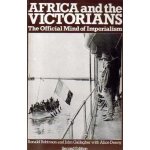Fabian Klose
Cross-posted from Humanitarianism and Human Rights
Follow on Twitter @FabianMKlose
The age of decolonization is of crucial importance for our understanding of today’s world. By dissolving colonial rule around the world, this process led to the emergence of new sovereign states, thereby permanently changing international relations and international law.
The third phase of decolonization is the one most closely associated with the term “decolonization” today – and which refers to the end of European colonial rule after 1945. The process of the dissolution of the European overseas empires had a profound effect on the course of international history during the 20th century. This process occurred relatively quickly given that colonial rule had existed in some cases for a number of centuries. Only after just 30 years, from 1945 to 1975, all the colonial empires had disappeared from the global map.











You must be logged in to post a comment.